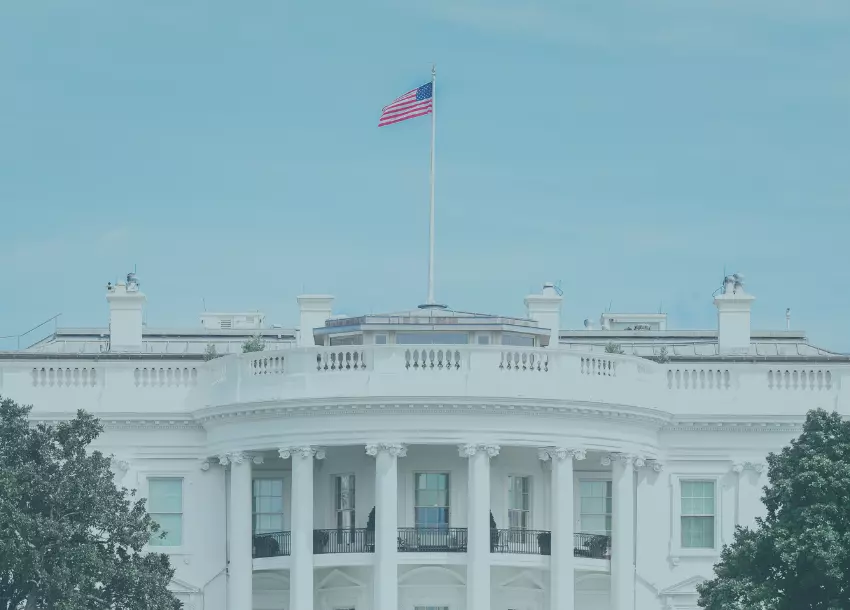Outrageous Requirements for Foreign Workers Pushing Business Away
Foreign companies play an enormous role in our local economy, with a 2015 survey finding that South Carolina ranks second in the country for largest shares of total private industry employment by foreign-owned companies. Foreign employers currently provide jobs for more than 100,000 people in South Carolina.
Employees are a company’s most important assets. A key executive or manager can make the difference between a company flourishing or failing in a market, and in an era of ever-increasing global connectivity, businesses have the ability to discover those key individuals around the world.
While it’s getting easier for firms to identify the right people for critical roles, companies who attempt to bring those essential employees to the United States are experiencing increased difficulty in obtaining visas for them. Far from protecting the native workforce, this development hurts American workers: when companies are unable to bring their key employees to this country, they consider leaving. Machinery can be shipped and new facilities can be built with relative ease, but if necessary personnel are prevented from obtaining visas, a company won’t set up shop here, or worse, they will leave.
Foreign companies play an enormous role in our economy. In 2016, foreign employers provided jobs for more than 260,400 workers in North Carolina and for more than 7 million workers across the United States. Raising the barriers between foreign companies and visas could impact North Carolina especially hard.
In a 2015 survey, South Carolina ranked 2nd in the country for largest shares of total private industry employment by foreign-owned companies. Foreign employers provided jobs for more than 100,000 South Carolina workers (8% from the Pew article x total private employment 2014 (1,592,300) = 127k foreign-supported jobs).
“Proof beyond a reasonable doubt,” on the other hand, requires a much higher degree of certainty. “By a preponderance of the evidence” is in no way equivalent to “proof beyond a reasonable doubt,” yet as important visa classifications are stymied by increasing demands for proof, it seems that USCIS has substituted one for the other.
To establish eligibility for a visa, foreign employers and employees go through an extensive process. For an L Visa, a classification for intracompany transfers of managers, supervisors and executives, as well as for employees with specialized or advanced knowledge, an application must include evidence of a qualifying relationship, descriptions of job duties and qualifications, and evidence that proposed employment is in “an executive, managerial, or specialized knowledge capacity,” among other requirements. Even when eligibility is decided based on the “by a preponderance of the evidence” standard of proof, these applications are difficult to complete; obtaining and translating documents that demonstrate relevant training, education, and job experience can be expensive and time consuming.
When eligibility is determined by “proof beyond a reasonable doubt,” however, it is practically impossible for foreign companies to put together a successful application. Published requirements like latitude for the applicant to “manage an essential function of the organization at a high level, without direct supervision of others” are difficult enough to prove, but with an L-1A visa, USCIS appears to maintain new unpublished expectations, like the expectation that applicants work within a highly-insulated management structure.
Executives and managers, by USCIS’s account, should have almost no front line supervisory duties. In order to qualify for a L-1A visa, applicants are expected to prove that each manager or supervisor the applicant supervised (both abroad and in the US) is a “professional,” where a “professional” is a person who holds either a degree or a combination of degrees and experience that equates to a U.S. bachelor’s degree in a profession that requires at least the equivalent of a U.S. bachelor’s degree as a minimum requirement for entry.
The proof doesn’t end there, however: for each of these supervised professionals, the applicant must provide extremely detailed day-to-day job descriptions to prove that these supervised supervisors are not performing menial tasks. This demand for information about foreign staff can cause its own set of problems; privacy laws in other counties often prohibit employers from releasing information that USCIS has come to expect.
The USCIS’s demands for proof are outrageous, but even when an applicant does appear to meet them, approval is not guaranteed. Multiple-page descriptions of job duties are routinely rejected as “generic” and “not detailed enough” to prove that the visa beneficiary will be relieved from performing non-qualifying (i.e. “non-managerial”) duties in the U.S.
No level of proof seems to satisfy the USCIS today, and their razor-thin definitions of “executive” and “management” all but ensure that a company’s greatest innovators will be denied visas. Under current L-1A visa interpretations, famous executives like Steve Jobs and Henry Ford would probably be rejected: Jobs famously spent a significant portion of his days developing products in Apple’s design lab, while Henry Ford worked alongside his engineers to develop the vertical cylinder engine. Both were employed as executives and carried out executive functions, but both also maintained a hands-on approach towards innovation and management.
Suppose they applied for L-1A visas now. Could either prove “beyond a reasonable doubt” that they performed non-qualifying tasks out of desire rather than necessity? Could they prove that every one of their subordinate supervisors were “professionals?” Both were clearly world-class executives and holders of specialized knowledge, but USCIS would almost certainly deny them visas.
Requiring microscopic levels of detail and mountains of documents to establish the legitimacy of a visa application is not the intention of Congress, nor does not serve the interests of our people. America is effectively becoming “closed for business” for foreign-owned companies, and the consequences will be borne by American workers and families. Visa reform is a critical issue for us all.. When we cut off a company’s access to key personnel, we discourage continued investment and invite the companies that have become our neighbors to look elsewhere.
David J. Garrett’s law practice helps businesses and people get where they need to go. He focuses on immigration-related matters and civil litigation, representing both individuals and companies. David is a member of the firm's employment and labor and construction practice groups, as well as leading the firm's immigration practice.
About Maynard Nexsen
Maynard Nexsen is a full-service law firm of 600+ attorneys in 31 locations from coast to coast across the United States. Maynard Nexsen formed in 2023 when two successful, client-centered firms combined to form a powerful national team. Maynard Nexsen’s list of clients spans a wide range of industry sectors and includes both public and private companies.








